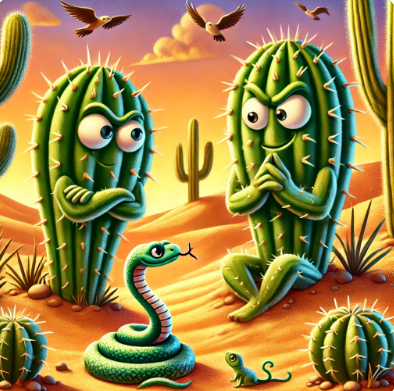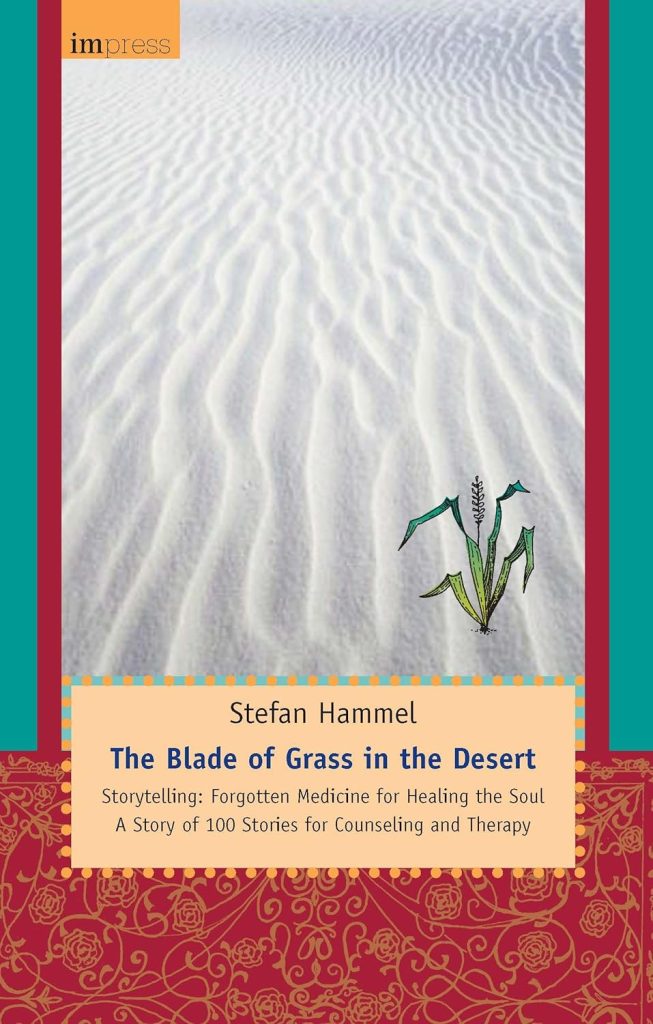I owe thanks for this story to Attila Mislai who translated it and Katharina Lamprecht who wrote it.
„Borzasztó!”, jajveszékelt egy kaktusz, „Akkora tüskéim vannak, hogy egyetlen állat sem mer a közelembe jönni. Se madár, se gyík, de még a legparányibb hangya sem. Annyira magányos vagyok!”
„Te panaszkodsz?”, förmedt rá a társa. „Az én tüskéim olyan vékonyak és puhák, olyan gyengék, hogy nem tudom megvédeni magamat. Egyetlen állat sem tart tiszteletben. A gyíkok fel-le mászkálnak rajtam, csiklandoznak aprócska lábaikkal, a madarak oly mélyen vájják csőrüket a húsomba, hogy az már fáj. Utálom az egészet!”
„Mázlista!”, mondta az első kaktusz, „ a gyökereimet is odaadnám egy ilyen élményért!” „Istenkém, bárcsak érezhetném magamon az élet lüktetését!” És csak hajtogatták, csak sírták egymásnak a bajukat hosszasan. Mígnem egyszer nagyszerű gondolatuk támadt: ha kicserélik a tüskéiket, átélhetik egymás örömét. S rövid ideig, csakugyan, mindketten boldogok voltak. Az egyik attól, hogy élvezhette a madarak és gyíkok társaságát, a másik azért, mert végre elmerülhetett a nyugalomban és csendben. De nem tartott soká, kisvártatva újra siránkozni kezdtek. Az egyik fárasztónak, a másik unalmasnak találta új életét, sóvárgott a régi után, így azután visszacseréltek mindent. A megkönnyebbülés persze megint hamar elszállt, és az egész kezdődött elölről.
Egyszer arra járt egy bölcs, öreg kígyó és megpihent az árnyékukban. Egy ideig hallgatta, ahogy egymás szavába vágva mondják a magukét, majd halkan megjegyezte: „Sopánkodás helyett inkább tanulnátok egymástól”. Azzal tovasiklott.
A két kaktusz három éjjel és három nap törte fejét a kígyó szavain. Próbálták megérteni, hogy sikerült olyan különleges tüskéket nevelniük. Tanítani kezdték egymást, megosztották a tapasztalataikat. Némi gyakorlás után végre pontosan tudták, hogy lehet erősebb és nagyobb, vagy épp finomabb és lágyabb tüskéket növeszteni. Minél többet kísérleteztek, annál ügyesebbek lettek, ezerféle színes tüske sarjadt igyekezetük folytán.
Így már képesek voltak egyensúlyt teremteni a csendes nyugalom és az életteli nyüzsgés között. És a bölcs kis kígyó kedvéért mindig fenntartottak egy puha árnyékfoltot kettejük között.
This story in English https://www.stefanhammel.com/blog/2016/02/10/3020/



